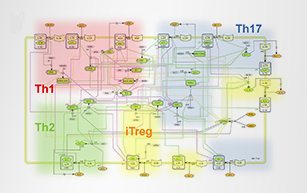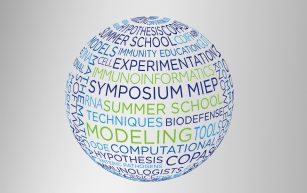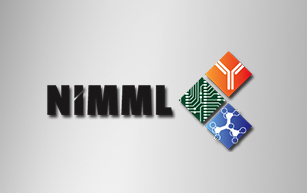
MIEP is studying CD4+ T cell heterogeneity, plasticity and differentiation by using mathematical and computational modeling in combination with immunology experimentation and single cell analyses.

MIEP’s translational medicine research integrates computational modeling with novel experimental approaches in an innovative product development pipeline leading to the characterization of novel mechanisms of immune modulation and development of new therapies.

Were you unable to attend Modeling Mucosal Immunity (MMI) Summer School Program and Symposium hosted by the Center for Modeling Immunity to Enteric Pathogens at Virginia Tech? Click here to see what you missed! Tutorials and a new Books based on Summer School materials are now available

MIEP was the first to demonstrate the strong cytotoxic CD8+ T cell responses during Helicobacter pylori infection in pigs, further confirming the role of H. pylori as an intracellular pathogen.

Innovative NIMML Translational Medicine approaches used to tackle challenges in infectious, immune-mediated and chronic inflammatory disease research.